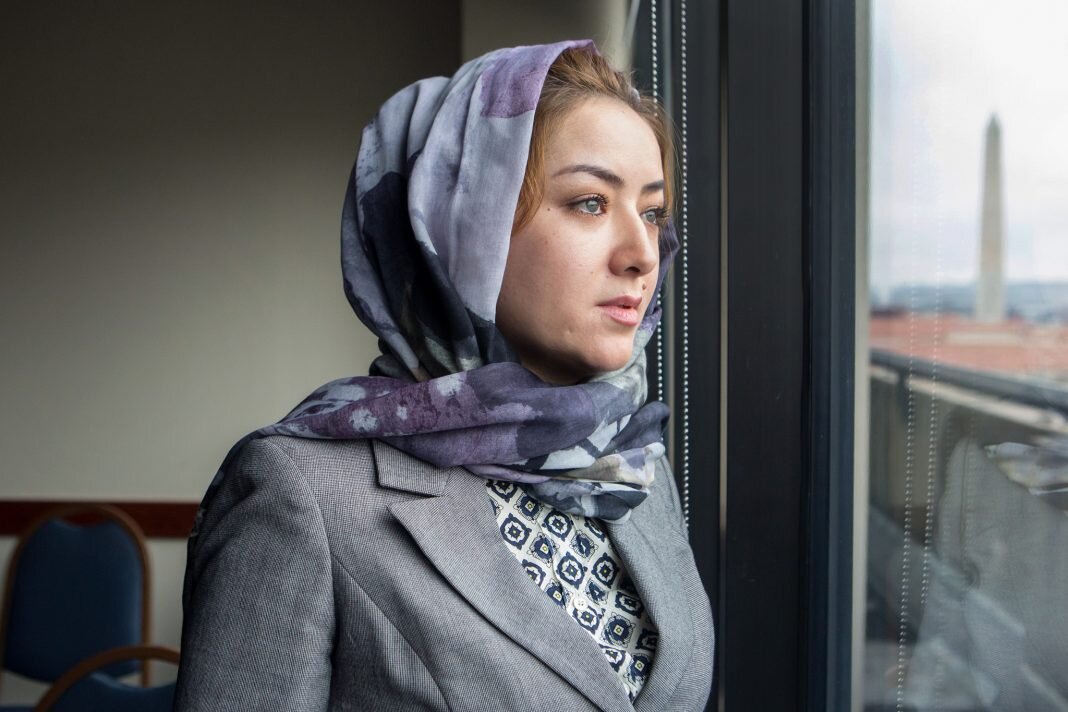Prisoners of Conscience freed due to COVID-19
Mihrigul Tursun, a young Uighur mother, says she was tortured and subjected to other brutal conditions in one of the “re-education” camps in China’s Xinjiang. Photo by U.S. State Department.
(OPINION) In early April 2020, the U.S. Ambassador at Large for International Religious Freedom, Sam Brownback, called for the release of prisoners of conscience in the wake of the COVID-19 pandemic. Brownback identified China, Eritrea, Indonesia, Iran, North Korea, Russia and Vietnam as countries with large numbers of prisoners of conscience. Prisoners who have been detained as a result of their political or religious views.
He emphasized that the Iranian regime has now “furloughed some 100,000 prisoners of conscience to mitigate the spread of COVID-19 to this high-risk group.” There are a few exceptions in several high-profile such cases. However, Brownback identified that “China continues to have a number of people imprisoned for their faith”, whether Uighur Muslims, “members of Protestant and Catholic churches, house church and even officially recognized church, Falun Gong members and Tibetan Buddhists.”
He further added that “Vietnam has 128 prisoners of conscience that are in prison right now, and we call on them to release those prisoners. Russia has nearly 240 prisoners of conscience, including 34 Jehovah's Witnesses.
Eritrea has 40 prisoners of conscience, including Jehovah’s Witnesses, and Indonesia has over 150 prisoners of conscience… in jail now for blasphemy law violations.” On North Korea, Brownback said that “North Korea has a very high number [of prisoners of conscience], and we don’t know how many are in their gulag system.” He warned that they would, highly likely, be exposed to COVID-19.
Brownback added that the US has been pushing this issue with members of the International Religious Freedom Alliance. Similarly, the U.S. Commission on International Religious Freedom (USCIRF) called on governments to release all prisoners of conscience.
The issue has received some attention in the United Kingdom. Several British Parliamentarians have written to the Prime Minister of Pakistan, Imran Khan, asking for the release of non-violent prisoners of conscience. Pakistan is also infamous for its large population of prisoners of conscience. Religious minorities often find themselves on the wrong side of the law with authorities prosecuting for vague and poorly evidenced crimes. A perfect example is the case of Asia Bibi, a woman who was on death row for nine years on poorly construed blasphemy accusations.
The parliamentarians argue that “given the prison conditions, we fear that all prisoners and detainees are facing serious risks to their health as we have received news of the rapid spread of this virus in prisons. We will therefore urge you to release all non-violent offenders; this will reduce the overcrowding in prisons and will also save the lives of prisoners and detained persons who remain vulnerable from the virus within the prison system.”
The call for the release of non-violent prisoners of conscience is not unusual in these very uncertain times. Indeed, in many countries around the world, to ease the pressure on prison populations and to prevent the spread of COVID-19, governments have taken decisions to release some prisoners. We need to remember that prisoners of conscience often end up imprisoned for the very fact that they follow a religion or belief that the government does not support or recognize.
They are normally detained simply for refusing to comply with that government’s orders. Sometimes they are imprisoned for expressing their religion or belief and so charged with blasphemy or proselytizing. A prison sentence for these “crimes” is already a severe punishment. Prison sentences in these circumstances should not become a death sentence due to the COVID-19 pandemic.
Ewelina U. Ochab is a legal researcher and human rights advocate, PhD candidate and author of the book “Never Again: Legal Responses to a Broken Promise in the Middle East” and more than 30 UN reports. She works on the topic of persecution of minorities around the world. This piece was re-published from Forbes with permission.

